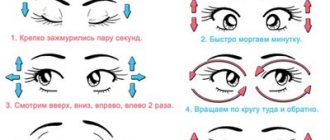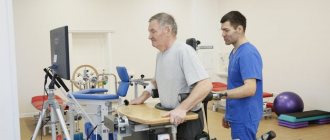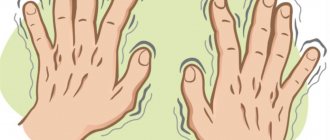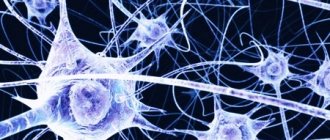Any competent doctor will tell you that you need to control your psycho-emotional state; if you can’t do it yourself, you can even be prescribed medications. Why is this so important? When stressed, the hormone cortisol is released. It affects the functioning of all body systems. Because of this, the functioning of the cardiovascular and nervous systems is disrupted, which can lead to deterioration in well-being, sleep problems, and problems with the gastrointestinal tract.
People who know how to cope with stress and avoid conflict situations tend to lead fulfilling lives. They have enough energy for work, friends and hobbies. Mentally balanced people have happy families, give birth to healthy children and raise them to be just as psychologically balanced.
The impact of stress on human health
Scientists have proven that the body of people who are constantly exposed to stress wears out 40% faster than those of those people who live in peace. Frequent stressful situations cause the following symptoms:
- Redness of the skin, various rashes;
- Feeling tired and exhausted even after a full sleep;
- Loss or gain of body weight;
- Constant feeling of anxiety;
- Tremor (shaking) of the limbs;
- Stool disorder.
If you do nothing, there is a high chance of developing the following pathological processes:
- Panic attacks;
- Depression;
- Heart failure;
- Stomach ulcer;
- Hypertension;
- Anorexia;
- Stress can also cause a decrease in sex drive in both women and men.
Cardiovascular system after coronavirus
Coronavirus increases blood clotting and increases the risk of thrombosis, but there is also a less obvious pathology of the cardiovascular system after COVID-19: myocarditis, an inflammation of the heart muscle, due to which the heart pumps blood less efficiently and supplies the lungs with oxygen less efficiently.
- Ultrasound of the heart - if after two or more months after the illness, shortness of breath does not decrease and it is still difficult to move, you need to contact a cardiologist and have an ultrasound of the heart.
- Avoiding stimulants such as caffeine or ephedrine. They can make heart problems worse. Therefore, it is better to temporarily replace espresso with green tea, in moderation.
Sleep as the basis for well-being
Adequate rest and healthy sleep are the first rules of a stable psyche. A well-rested person is more resistant to stress. The norm is considered to be 7-8 hours of sleep (and at least 9 hours if a person trains hard or works on his feet).
If there is not enough sleep, the stability of the nervous system decreases. You've probably observed how small children become capricious when they are tired and want to sleep. A similar condition is observed in adults who regularly do not get enough sleep - it becomes difficult for them to control their emotions, they feel irritation and aggression.
To improve the quality of your sleep, be sure to create a comfortable sleeping environment in your bedroom - darken the room, ventilate it before bed, and try to make the room quiet. Maintain a sleep schedule - try to go to bed and wake up at approximately the same time every day and not deviate too much from this schedule, even on weekends. If these measures do not help, contact a neurologist or somnologist. Your doctor will help you improve your sleep and quality of night's rest.
How to restore strength and psyche after severe stress
Details Author: LDC Neuron Published: November 10, 2015
Having experienced another trouble, we begin to think about how to recover from stress. A few moments after stress leave a destructive mark on the psyche. A person who has experienced stress begins to be haunted by obsessive thoughts, fears, sleep disturbances and other unpleasant things. In addition, after stress, various abnormalities may appear in the body:
- Depression
- Increased excitability
- Headaches due to spasms of blood vessels in the brain and circulatory system
- Insomnia
- Apathy
- Various pains
- Endocrine disorders
- Stomach cramps
- High or low blood pressure, etc.
A lot of scientific works are devoted to these “fellow travelers” of stress. Even the ancient Greeks tried to solve the problem of stress resistance. In their opinion, and we must admit that they are right, the strength of the individual lies not in avoiding stress, but in the ability to recover from it.
Meditation and psychotherapy, their impact on health
Meditation is a great way to cope with depression and stress without medication.
The effect of meditation on the body is:
- Improving brain function. It has been scientifically proven that a course of meditation helps restore brain cells;
- Reducing the risk of developing heart disease;
- Eliminate feelings of anxiety;
- Developing mental resistance to stress;
- Increasing immunity and strengthening the body's defenses.
Scientists from Washington conducted an interesting study. 15 colleagues from one enterprise voluntarily took part in it. Before the rehabilitation course, each of the volunteers underwent a stress resistance test. It turned out that 14 out of 15 workers live in constant stress and cannot effectively cope with nerve-wracking situations.
The workers completed an eight-week meditation course under the supervision of a specialist - and a repeat test showed that the workers became much calmer and learned to control their emotions. Psychotherapy also shows good results - it helps solve problems and combat anxiety.
Getting rid of constant fatigue after coronavirus
Many patients after COVID-19 complain of fatigue and weakness. There is an opinion that this asthenia may be associated with chronic fatigue syndrome: it is assumed that it can manifest itself after viral diseases. Such signs were found in survivors of the SARS outbreak. However, the existence of chronic fatigue syndrome is still a controversial issue: it is not in the International Classification of Diseases, and not all doctors recognize its existence. There may be a simpler explanation for weakness after coronavirus infection. This is a consequence of the fact that a person spent a long time lying down, did not perform any activity and suddenly began to move. At the same time, the body is weakened by the fight against infection, and the lungs cannot cope with the volume of oxygen that the body needs. It should be remembered that prolonged weakness is not a specific phenomenon for viral infections. This happens after any disease that confines a person to bed.
- Gradual progression - Once you recover from an infection, your body's adaptive abilities kick in and you become stronger simply by doing everyday routine activities like cleaning and walking to work. It is necessary to monitor the dynamics of well-being and complicate motor tasks every day. This will bring your condition - energy, breathing, muscle strength - to the level it was before the illness. You need to find a balance between what is very easy and what you don’t have enough strength for.
- Regular walking is the safest and most effective way to regain strength; this is intense walking. The ideal option is to exercise in the gym on a treadmill at an angle, which increases the load. If there is no such path, and you are walking along an ordinary path or in a park, you should pay attention to the speed and distance, track them in a diary or using a gadget. For example, if today you walked 4 kilometers in an hour, after which shortness of breath appeared, you should record this and cover the same distance the next day, and add 50 - 100 meters. Slowly increase the load, or increase the speed and lengthen the distance.
- Monitoring your well-being - shortness of breath and fatigue will appear while moving, and this is normal. However, breathing should return to normal within 2 to 3 minutes after you stop. If shortness of breath prevents you from moving and lasts longer than these 2-3 minutes, this is a signal that the load is too much, and the next day you should do a little less exercise. In addition, certain symptoms during movement: dizziness, nausea, headache and clammy sweat should alert you. If they appear frequently, you should consult a doctor. Other measurements during exercise should be taken as prescribed by your doctor. Control of saturation - if it is recommended in the discharge, control of pulse and pressure - if there is hypertension or other heart problems.
- Working with balance - coordination depends on information that comes to the brain from specific receptors under the skin. Their sensitivity can be developed. For this purpose, special unstable platforms are used, and simple exercises are performed on them. A situation of instability will force the nervous system to more actively seek balance, and it will become easier to find it on a solid surface. Special massage mats for feet with a relief texture will also come in handy. Or simply walk on grass, sand and rocks barefoot or in shoes with thin soles that will convey the structure of the surface.
How to learn to control your psycho-emotional state?
How to maintain health and increase stress resistance?
- Don't take on several things at once. Complete every task you start without being distracted by extraneous factors. If your job does not allow you to do only one thing, make a schedule for the priority of tasks and, in the time allocated for a task, do only it.
- If you are nervous about a situation, ask yourself if there is something you can do. If not, then you need to come to terms with the fact that this situation and its result are beyond your control and try to distract yourself with something else. If you can, no need to worry, just do it.
- Try to develop independent self-esteem. Of course, listening to a negative assessment and scolding is unpleasant - but, if you think about it, this assessment has nothing to do with you. This is just the opinion of another person, which can be taken into account if the person is important to you, but should not be taken as an objective reality. Evaluate yourself.
- Set realistic goals for yourself. Not the easiest, but achievable. When determining the deadline for completing a task, reserve 15-20% of the time for force majeure situations and the human factor, then delays will not unsettle you.
- Light physical activity helps stabilize the psycho-emotional state - nothing calms you down like a light jog or swimming.
- Go to bed no later than 11 pm, try to sleep at least 8 hours.
- Organize your workplace in such a way that it is pleasant to be there and easy to find everything you need.
- Eat the right foods. For the stability of your psycho-emotional state, it is very important to eat a balanced diet. B vitamins are especially important.
- At least once a week, do something that makes you happy. Meet with friends, dance, eat delicious food, play computer or board games.
If nothing helps, and you feel that it is difficult for you to cope with stress on your own, contact a specialist; you may have depression. In this case, you need qualified treatment.
Warning signs requiring special attention
Attention! If you have the following signs, then it's time to reconsider your priorities.
Headache.
One of the most common consequences of stress. In 45% of cases, headache is a consequence of mental stress.
Signs of a stress headache: mild, squeezing or pressing, localized in one area (back of the head, temples, parietal region) or “spreads” over the entire head. A headache of this nature can occur not only due to mental stress, but also in people who are sensitive to weather conditions or in people with poor eyesight.
If you have a headache, you can get effective help by taking sedative medications. However, if it does not go away, it is important not to delay your visit to the doctor.
My heart hurts.
This symptom may be a consequence of constant stress. The pain can be aching or burning, a feeling of heaviness behind the sternum or numbness of the left arm. Sometimes a person may feel a slight tingling sensation or frequent heartbeats for no reason.
Any pain in the heart is a reason to consult a specialist.
Even if you are absolutely sure that the cause of the pain is a stressful situation, you should not postpone a visit to the doctor.
Stomach diseases.
Often the effects of stress manifest themselves in the form of painful spasms. In addition to the presence of cramps as a reaction to stress, eating disorders can lead to stomach pain. In addition to treating diseases of the gastrointestinal tract directly, doctors recommend taking mild sedatives of plant origin: valerian, motherwort, ginger, etc. Often, in the initial stage, sedatives are sufficient.
Weakness after stress.
It may be manifested by a decrease in blood pressure, expressed by drowsiness, trembling and numbness of the extremities. This state is typical for situations when a person performs some action without desperately wanting it. The body, realizing the uselessness or harmfulness of the situation, refuses to release energy.
Symptoms such as “I want to sleep”, “I can’t hold my legs up”, “everything is falling out of my hands” indicate emotional rejection of the situation, an attempt to “hide” from it.
Hair loss.
Stress is the second factor in hair loss after genetics. Against the background of prolonged stress, the body experiences a real hormonal imbalance, from which everything suffers, including the skin. If your hair is falling out, it means that high levels of stress are causing your body to change the natural life cycle of your hair.
In particular, the body directs all its resources to the main thing - to repel a real threat, to avoid or neutralize what it considers life-threatening. Hair from this position is somewhere in last place in the distribution of resources. Therefore, in such a situation, the most expensive and high-quality shampoos and conditioners are unlikely to help significantly. It is much better to focus on eliminating the very cause of hair and skin problems.
Therefore, in addition to contacting a specialist, you must follow the already familiar recommendations: a healthy diet, healthy sleep, as well as an optimal work and rest regime for your body.
Back pain.
Constant exposure to negative stress factors leads to muscle spasms. Muscles lose their elasticity from constant tension. Nerves and blood vessels are compressed, blood circulation deteriorates, and, therefore, the nutrition of internal organs and systems.
Severe pain leads to even more stress. It turns out to be a vicious circle. When treating severe pain, you cannot do without painkillers. However, you cannot rely on them alone. It is necessary to understand the cause of stress.
Signs that back pain is caused by stress:
- the pain is not localized, periodically occurs in different places;
- the presence of painful points in the muscles;
- sleep disorders.
Depression.
Characterized by loss of interest in all areas of life and usual activities. For depression, in addition to psychotherapeutic treatment, medications are prescribed that stimulate the production of serotonin (the hormone of joy).
Depression can be a temporary reaction to life’s difficulties (loss of a loved one, dismissal, long-term separation, etc.). Or it may be a symptom of some somatic diseases.
And sometimes depression can occur as a reaction to stress, when the brain is overloaded with information and emotions. In addition to weakness, depressed mood and low self-esteem, the following symptoms may indicate depression:
- pessimism,
- guilt,
- anxiety and fear,
- poor concentration,
- suicidal thoughts,
- sleep and eating disorders.
If you suspect depression, contacting a specialist is mandatory.
Emotional disorders
In addition to depression, there is a whole group of emotional disorders that can appear after experiencing severe stress. This could be overwork, exhaustion, hypochondria. Nervous asthenia is observed in any disorder. A person is unable to maintain concentration for a long time, his level of performance becomes extremely low, fatigue and chronic fatigue appear.
Dealing with emotional disorders (even if you prefer to “get out” on your own) is impossible with “handicraft” methods. You need a clear knowledge of techniques, methods and methods that will help you heal. This is exactly what I share in my online training on treating emotional disorders. The training will be useful not only for those who have identified signs of emotional disorders, but also for psychologists working in this area.
Stages
Different researchers have defined the stages of development of emotional burnout in their own way, but in practice they most often turn to G. Freudenberger’s approach.
Herbert Freudenberger
Together with his colleague G. North, the professor identified 11 stages of worsening symptoms.
- Obsessed with demonstrating one's own worth to more successful colleagues
- Inability to escape from work, engage in favorite hobbies, or spend leisure time
- Neglect of natural needs - normal daily routine, diet, social communication
- Denial of the presence of a problem - irritability, feeling threatened, panic
- Qualitative distortion of values, excessive obsession with job responsibilities
- Deterioration of relationships with colleagues and immediate supervisors
- A rapid reduction in social connections, the emergence of a tendency to bad habits as a means of getting rid of stress and relieving tension
- Obvious changes in behavior that loved ones begin to notice
- Depersonalization is a literal loss of the meaning of life, devaluation of everything that was previously dear
- Feeling of internal emptiness, attempts to fill it with promiscuity, overeating, psychoactive substances
- Severe depression – feelings of insecurity, exhaustion, mental and physical health problems.
Depending on individual characteristics, the development of skills to overcome stress, and the tendency to self-reflection, emotional burnout can occur with different dynamics, but in the end it all comes down to one thing - the development of full-fledged mental disorders.








